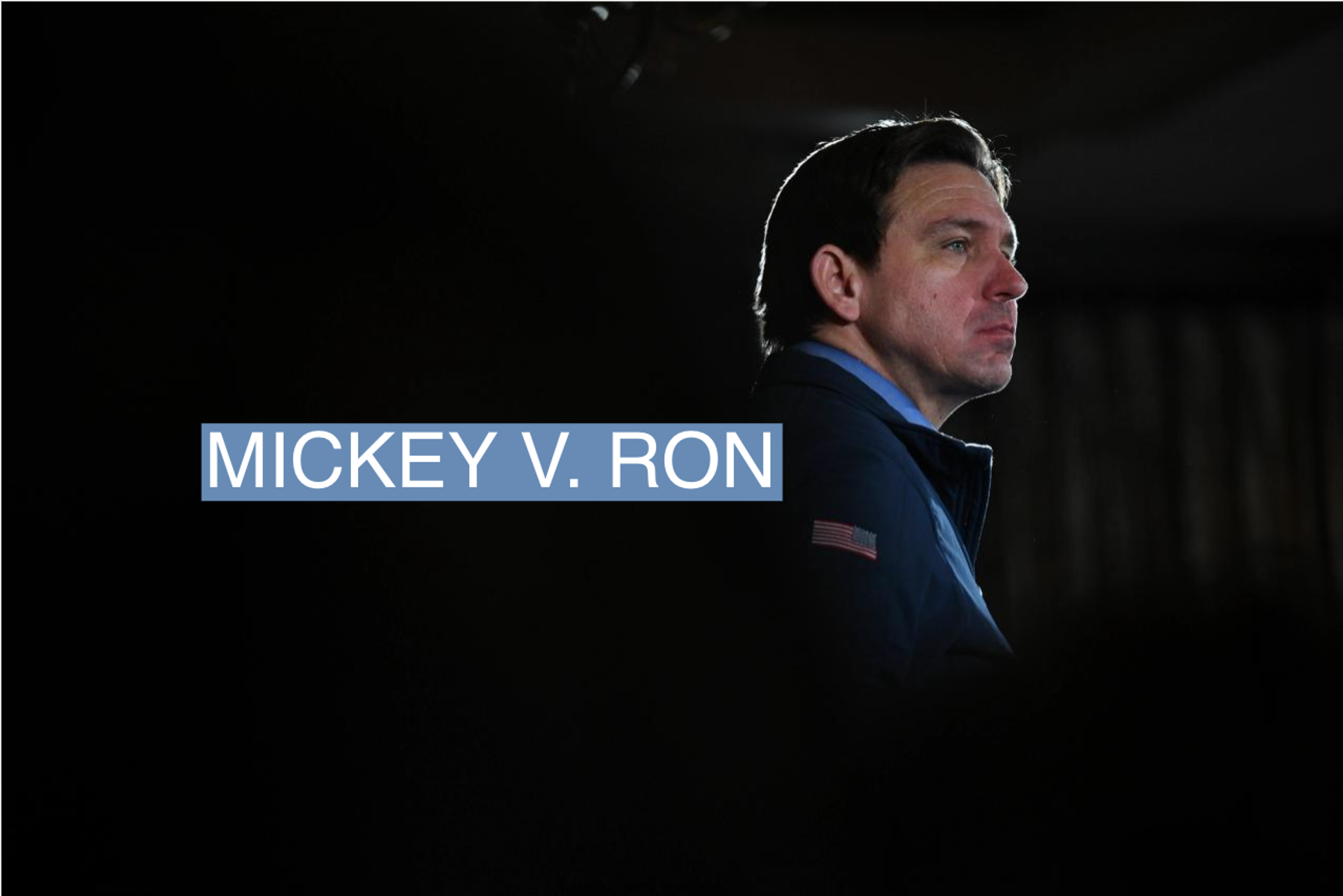The News
A federal judge on Wednesday dismissed Disney’s lawsuit against Florida Gov. Ron DeSantis, saying the company didn’t have standing to sue. Disney alleged in its suit that DeSantis retaliated against the entertainment giant after it criticized a controversial Florida law that restricted classroom discussion of gender identity and sexual orientation.
DeSantis and Disney began warring over the so-called “Don’t Say Gay” law last year, with the governor amplifying his “woke Disney” attacks while launching his now-defunct presidential campaign.
State lawmakers stripped Disney World of its special tax status, which for decades allowed the park to function essentially as its own county government. The state later reversed that ruling to avoid forcing Florida taxpayers to foot the bill for some of Disney’s services, but the company is no longer allowed to appoint members to its tax district oversight board. DeSantis now holds that power. “It completely circumvents the authority of the board to govern,” one board member told The New York Times after the change.
Lawyers for Disney argued that the “targeted campaign of government retaliation-orchestrated at every step” by DeSantis, threatened Disney’s business and violated its constitutional rights.
SIGNALS
Experts predicted that DeSantis’ anti-Disney stance could dash his presidential hopes
DeSantis’ antagonistic approach to Disney may have alienated voters during his campaign, as one expert predicted last year. “He has gotten all he is going to get out of this gambit with the right-wing zealots,” a retired Republican lobbyist told Reuters when DeSantis’ showdown with Disney started. “From here on out, he will just appear more petty, vindictive and foolish to everyone else.”
A Reuters/Ipsos poll from just before DeSantis launched his presidential campaign last year found that 73% of voters — including 82% of Democrats and 63% of Republicans — said they were less likely to support a candidate who backs laws designed to punish a company for its political or cultural stances.
Proving political retaliation in court is a tall order
“It’s very easy to know that DeSantis is retaliating against Disney for its political views and political activity, but that doesn’t mean it’s easy to show it legally in a case,” a law professor told The Wall Street Journal last year. DeSantis repeatedly expressed his disdain for companies like Disney, accusing them of advancing “a woke agenda,” but said his decision to strip Disney World’s control of its special tax district was only to forbid a corporation from maintaining special privileges. That argument makes it more difficult to show that DeSantis’ move was meant to punish Disney for speaking out against the “Don’t Say Gay” law, experts told Reuters.
Disney vows case ‘will not end here’
A Disney spokesperson told CNN that this case “will not end here.” Left unchallenged, this ruling “would set a dangerous precedent” and allow states to “weaponize their official powers to punish the expression of political viewpoints they disagree with,” the spokesperson said.
When Florida moved to dissolve special tax districts including Disney’s, one state legislator said the decision was specifically meant to target the entertainment behemoth. “You kick the hornet’s nest, things come up,” Rep. Randy Fine said at the time. “And I will say this: You got me on one thing — this bill does target one company. It targets The Walt Disney Company.” Fine later backtracked, saying the bill didn’t target anyone.

